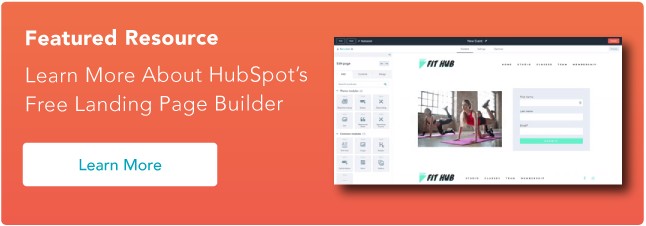Whether you’re a blogger, social media marketer, or paid marketer — you have a healthy relationship with the landing page. Sometimes, you might go through rough patches where you wonder why landing pages exist. But they’re always there for you, increasing conversions, netting new leads, and driving traffic to the offers you’ve worked so hard to create.
But, to be honest, there are a lot of different types of landing pages, and not all of them serve the same purpose. Luckily for you, we're not only going to break down each type of landing page, but we collected new data to help you pick the one that will make your next campaign successful.
We surveyed 101 marketing and advertising professionals to learn which landing page elements and strategies were most effective.
When asked, "What are you most commonly trying to generate with landing pages?" the top three responses were to gain:
- Leads through prospective customer contact information (44%)
- Customers or direct purchases (38%)
- Email subscribers (10%)
Businesses want to connect to customers and gain the ability to either guide them directly to purchase or to add them to a subscription where interest can be gradually built. But it's important to consider that a landing page by itself may not be enough to convert — the elements on the page contribute to that success.
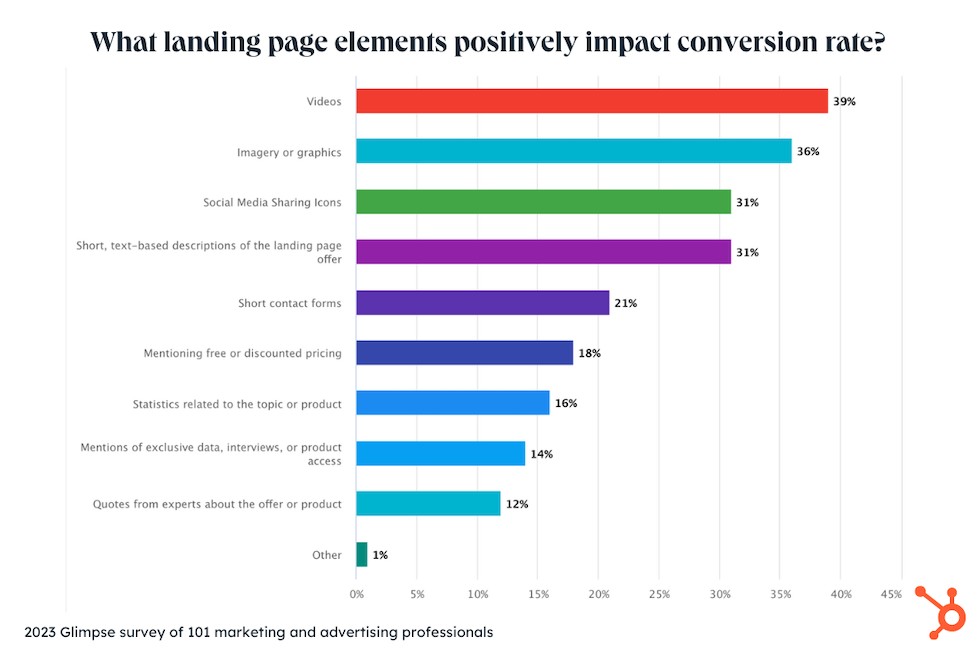
Surveyors also shared that multimedia elements like videos (39%), images or graphics (36%), and social media sharing icons (31%) positively impact conversion rates with present on a landing page. The more interactive or engaging that you make a website, the more likely visitors will want to spend more time on page and digest more of the information, product, or service you're offering.
This survey not only showed the different results that marketing and advertising professionals could gain from a landing page, but that depending on your business need, you can include elements specific to your strategy if you use the right type of landing page to get there.
As we go through each type of landing page, remember this information to ensure you're leveraging the right one for your next campaign.
While there are many fantastic landing page examples for you to check out, not all landing pages serve the same purpose, many of them achieve a variety of objectives.
1. Squeeze Page
A staggering 90% of B2B marketers say email marketing is either very effective or somewhat effective for reaching their goals, according to 2022 HubSpot Blogs report. So it’s not surprising that squeeze pages are one of the most important and effective landing pages out there.
A squeeze page is one in which the goal is to capture the user’s email address. Once you have the address, you can begin to nurture that lead with relevant content and other offers.
The most common type of squeeze page is gated content or a prompt to enter your email address to receive a newsletter, ebook, whitepaper, or other content offer.
Make sure your squeeze page is simple, your CTA is tempting enough to get your user to give up their email address, and you make it easy for users to click out of the page and onto the content that brought them to your site.
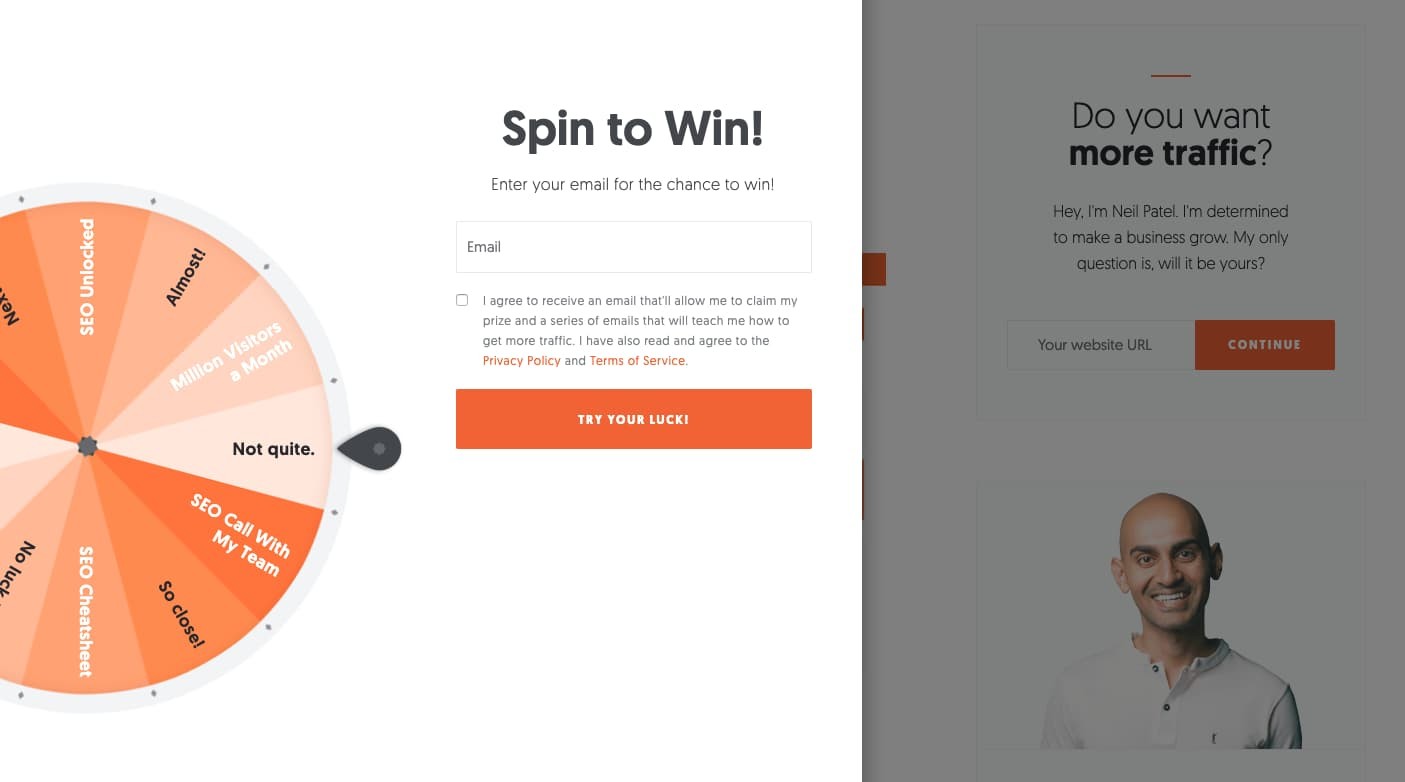
2. Splash Page
A splash landing page doesn’t always have lead capture as the main goal. These pages are often used when someone clicks a social media or content link. Instead of being sent directly to the article or social media destination, the user is sent to an intermediary page: the splash page.
This page might share an announcement with the user, such as “We’ve just unveiled new dates for our marketing conference!” It might also ask your user for a language preference or to enter their age. The splash page might also present an ad, which the publisher benefits from, if the user clicks on the ad.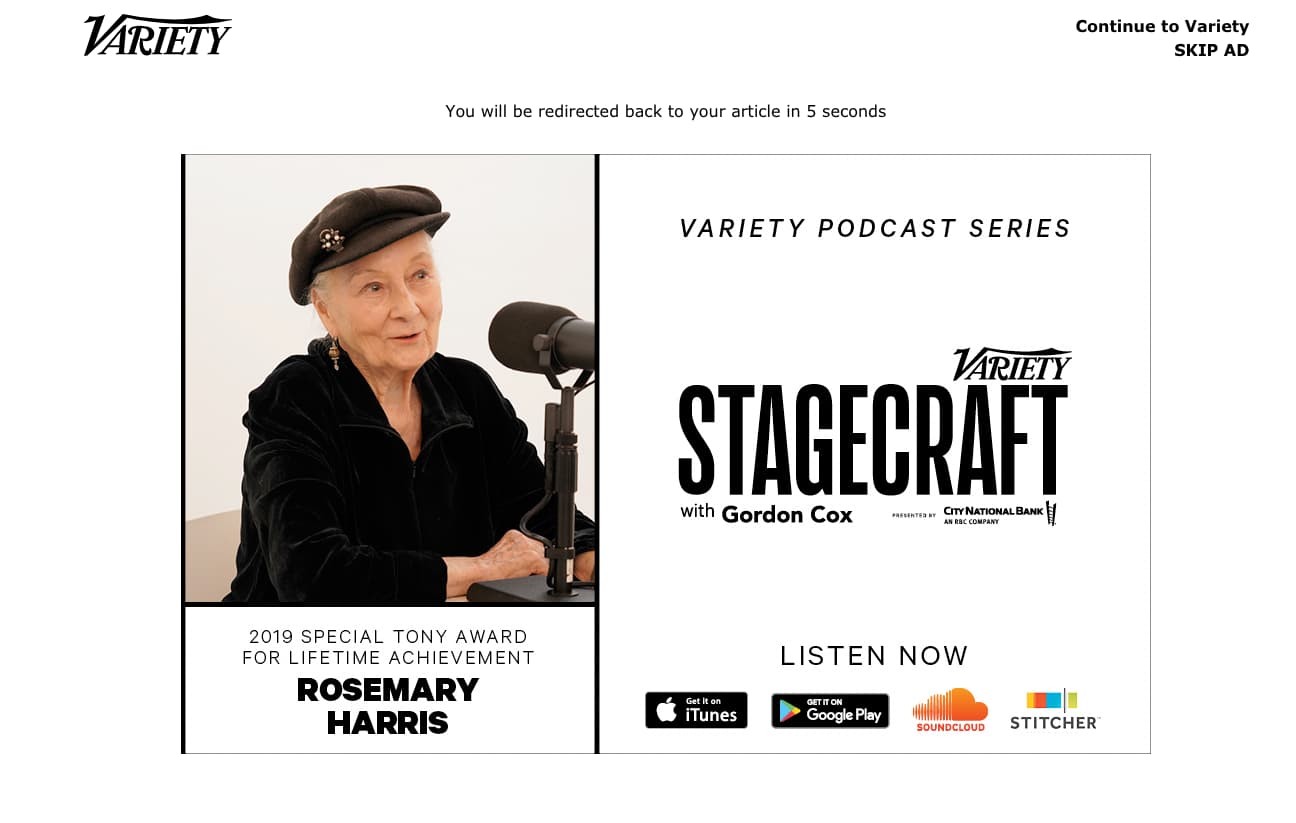
The splash page above does two things really well: First, it offers a countdown to the end of the ad and the ability to easily click to the article once the ad is done. Second, it serves a clear purpose — to show the user an ad.
3. Lead Capture Page
A lead capture page is similar to a squeeze page, but generally sources more information. Name, business name, email address, job title, and industry are just a few things these landing pages seek to earn.
The information you request depends on the goals for the page and those of your sales and marketing teams, as well as where the customer is in the funnel. If your lead capture page is top of the funnel, step away from the eight-lined form, please.
If, however, your customer is landing on your lead capture page after demonstrating real interest in your product/service (i.e., they downloaded two case studies) you should be able to ask for more information to help qualify and direct them.
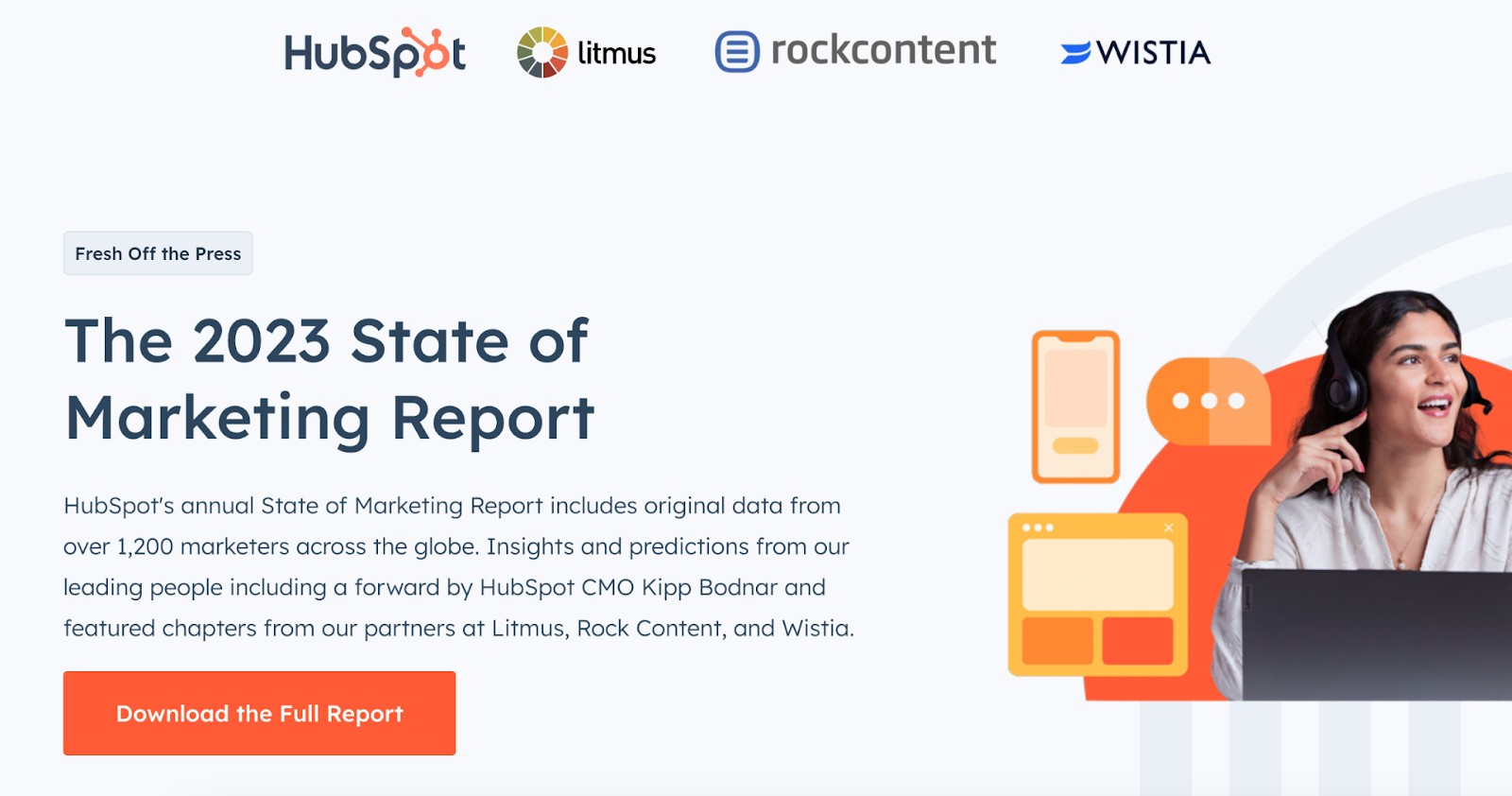
4. Click-Through Landing Page
Every marketer knows you must provide value to your customer before asking them for money. A click-through landing page provides that value without pummeling your customer with a “Buy Now” button before they’re ready.
Often, this looks like a landing page that shares the benefits and features of your product/service with a CTA button encouraging your customer to try a free trial. Once they click on that button, they’re taken to another landing page which provides pricing details and requires payment information to begin the trial.
By the time your customer lands on this page, however, they're primed and educated on why they should move forward with the trial. In the examples below, you see the click-through landing page, and then the payment landing page customers are sent to when they decide to embark on a free trial.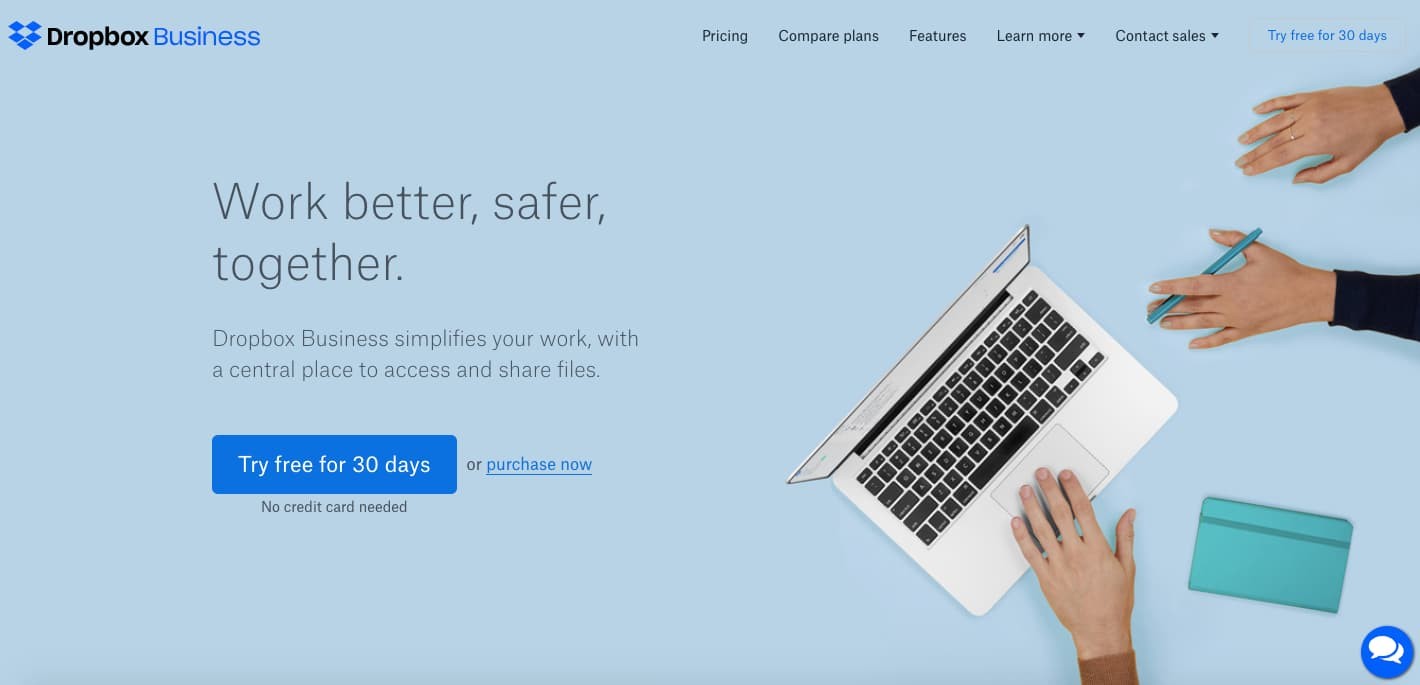
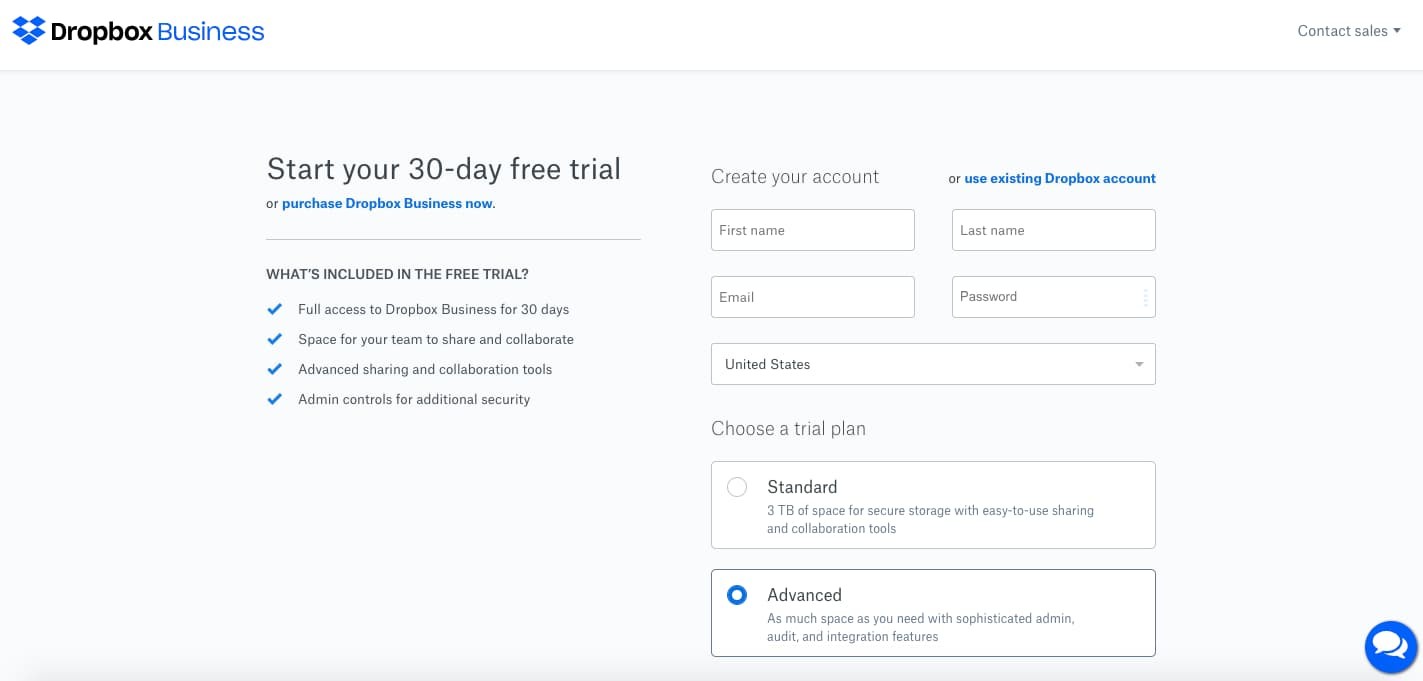
5. “Get Started” Landing Page
A “Get Started” landing page should lead with your offer above the fold. Take this page, from Mailchimp, which explains their overarching benefits: tools that turn audience data into insights that will guide campaigns.
Hooked already? Great, because a “Get Started” button awaits. Need more convincing? Well, the details follow as you scroll a feature- and benefit-laden landing page.
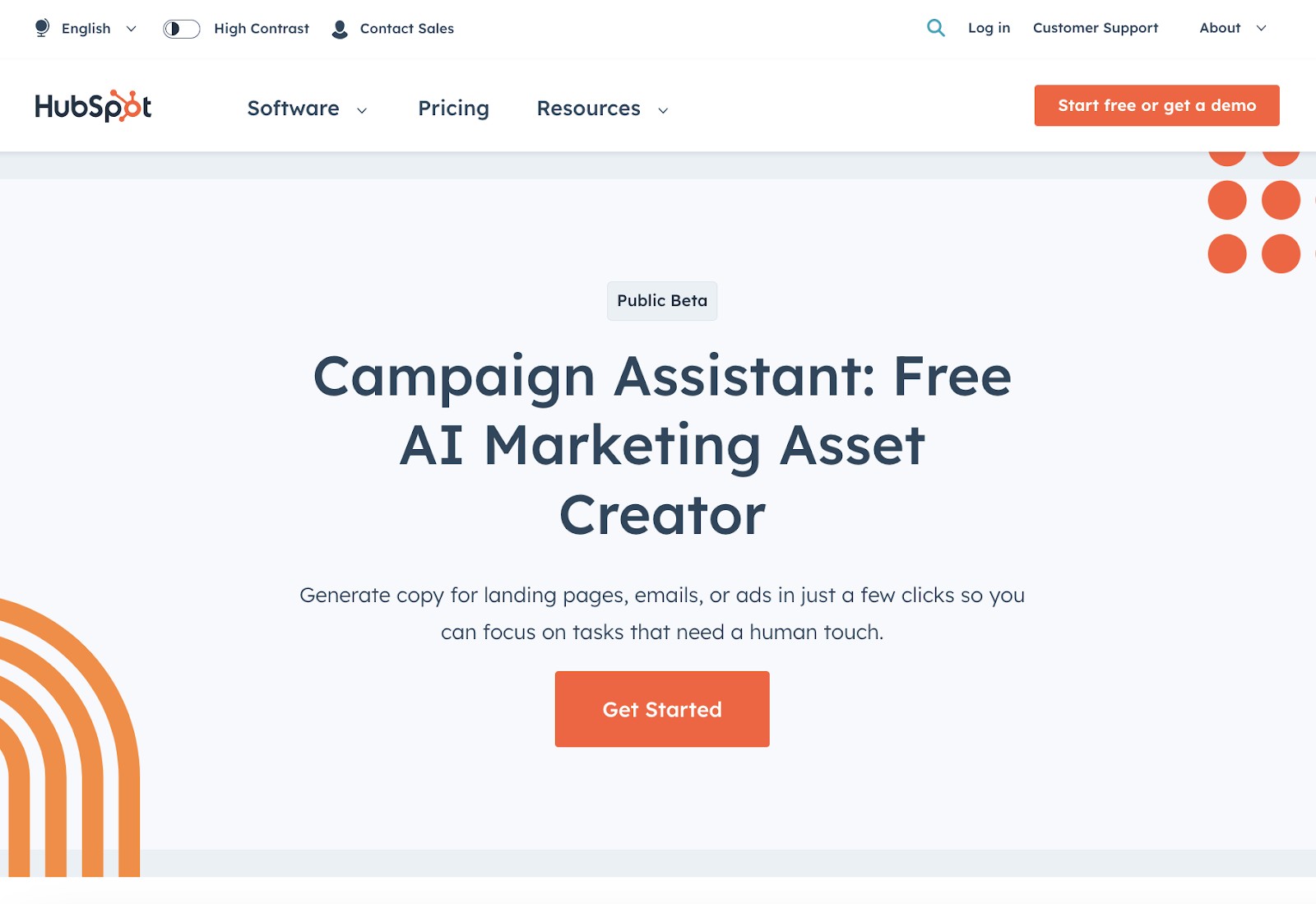
Get started with HubSpot's Campaign Assistant yourself
6. “Unsubscribe” Landing Page
Obviously, you’re not going to build a campaign around your unsubscribe page, but it’s important not to neglect it. Make sure it successfully unsubscribes your users, offers them a chance to manage their preferences or adjust the cadence, and consider including links to other areas of your website, like this example from Whole Foods.
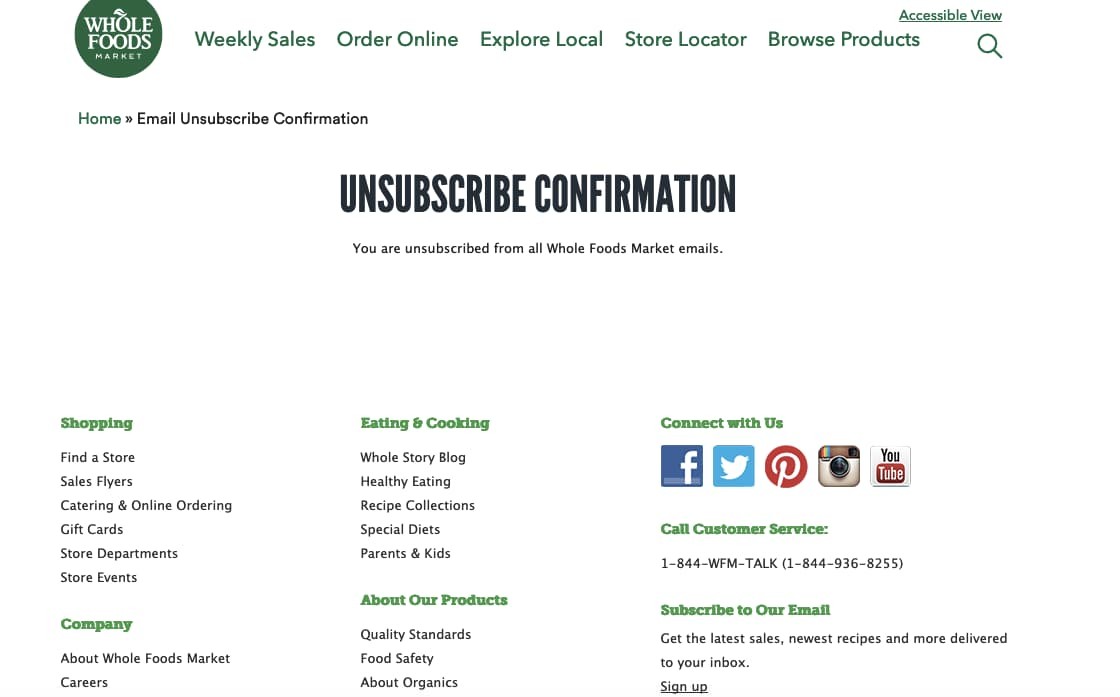
After all, just because they don’t want to receive your emails, doesn’t mean they might not want to browse your site. Consider adding a “second chance” button that prompts users to resubscribe in case they get cold feet.
7. Long-form Sales Landing Page
On a long-form sales landing page, brevity is not your friend. You want to think of every question your customer might have for you, every barrier to purchase they might face, and every benefit they’ll enjoy by making a purchase when they scroll to the bottom of the page.
Take this example, from Seth Godin’s altMBA. 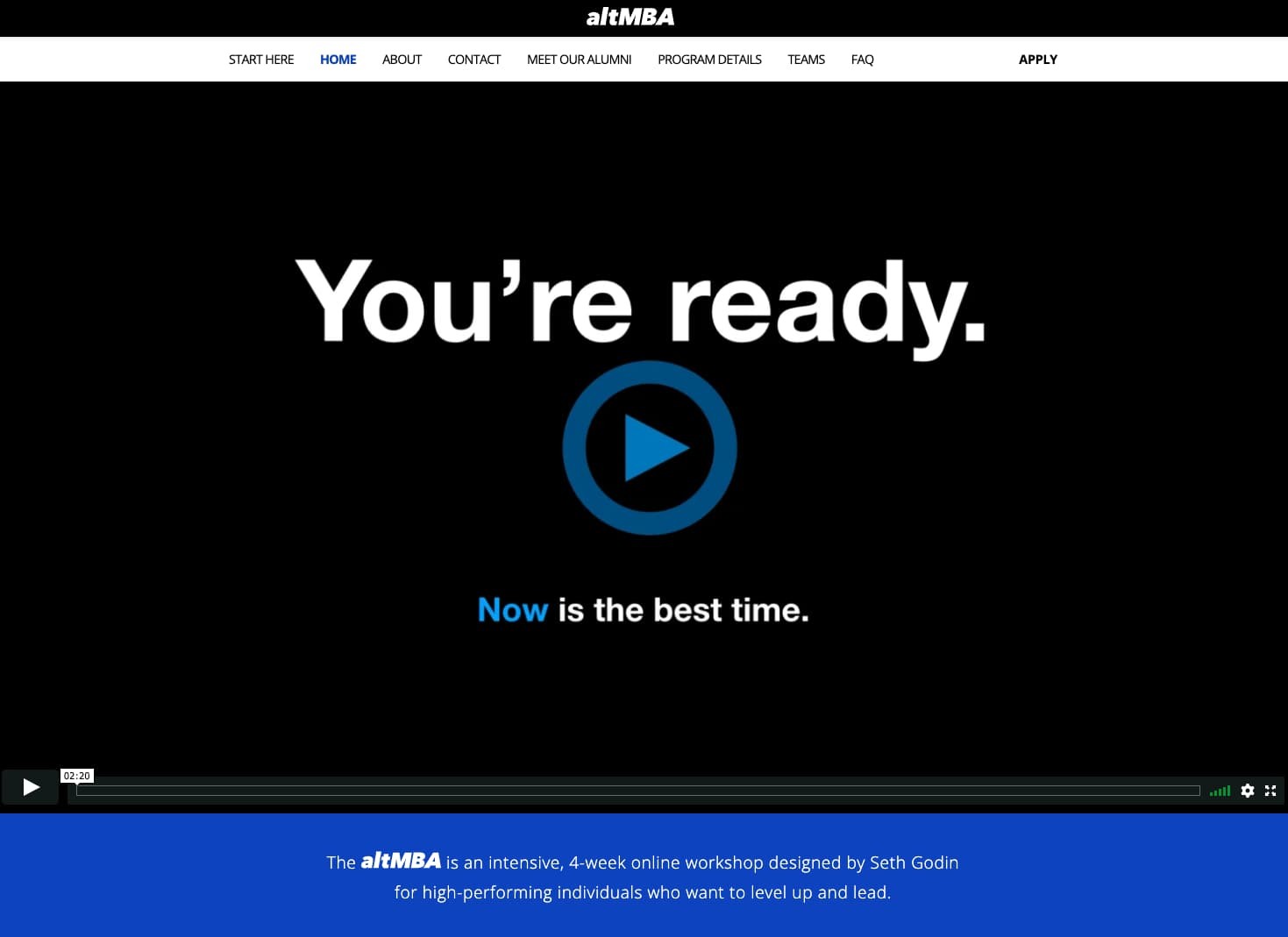
It starts with an informative video that tells you why now is the right time to apply. Then you see the names of companies and pictures of students who have benefited from the course.
Quotes follow, along with links to join mailing lists, learn more about the program, and read testimonials. Finally, at the bottom of the page is a CTA button for the application, and program dates that add a sense of urgency.
A sales landing page should be detailed and lack the minimalism of, say, a squeeze page, simply because your goal for the page is to close business.
8. Paid Advertising Landing Page
If you’re not sending customers who click on your paid ads to the right landing page, you’re throwing money away. Generally, you want to generate leads from these ads — not necessarily sales.
For example, while scrolling through Instagram, I clicked on this ad from HubSpot's coming INBOUND convention.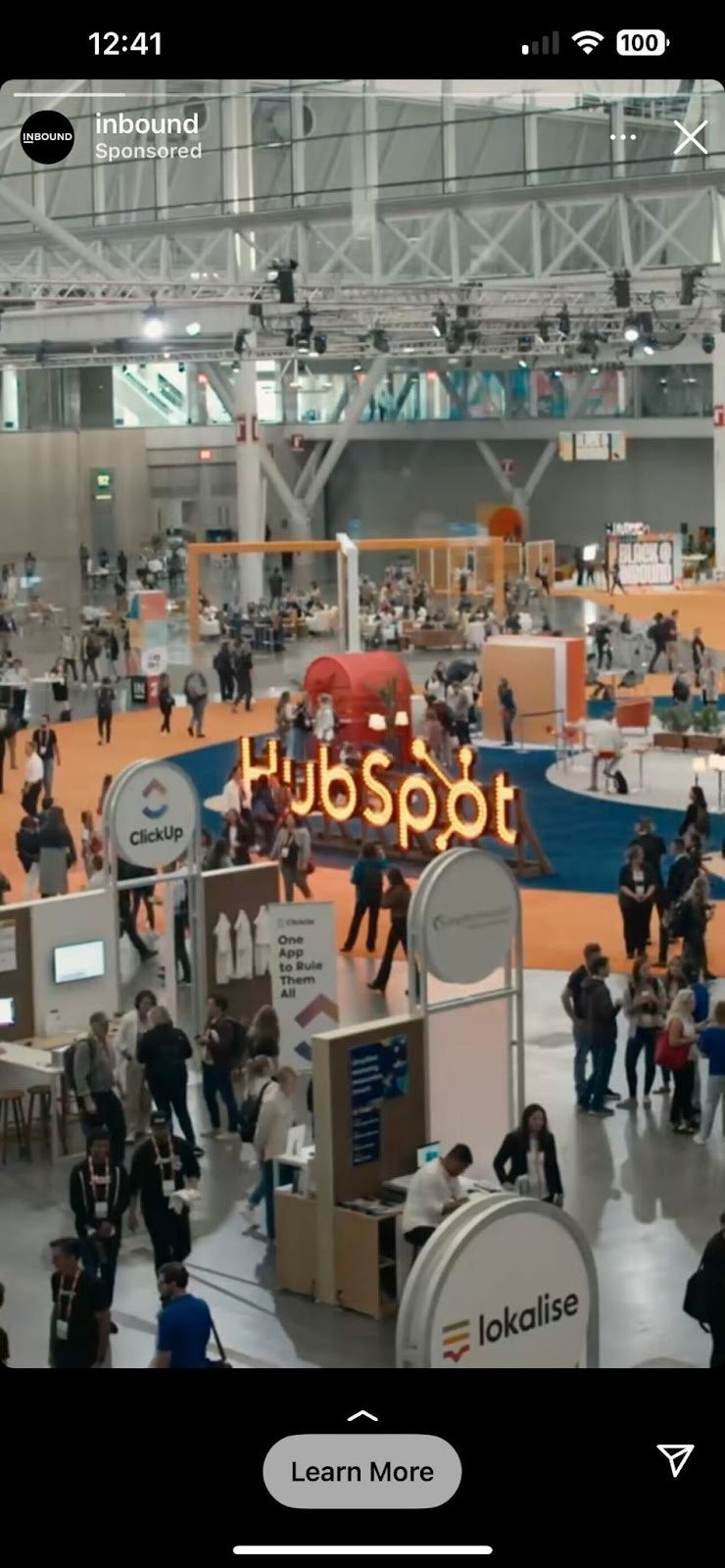
When I clicked on the ad, I was taken to this squeeze page:
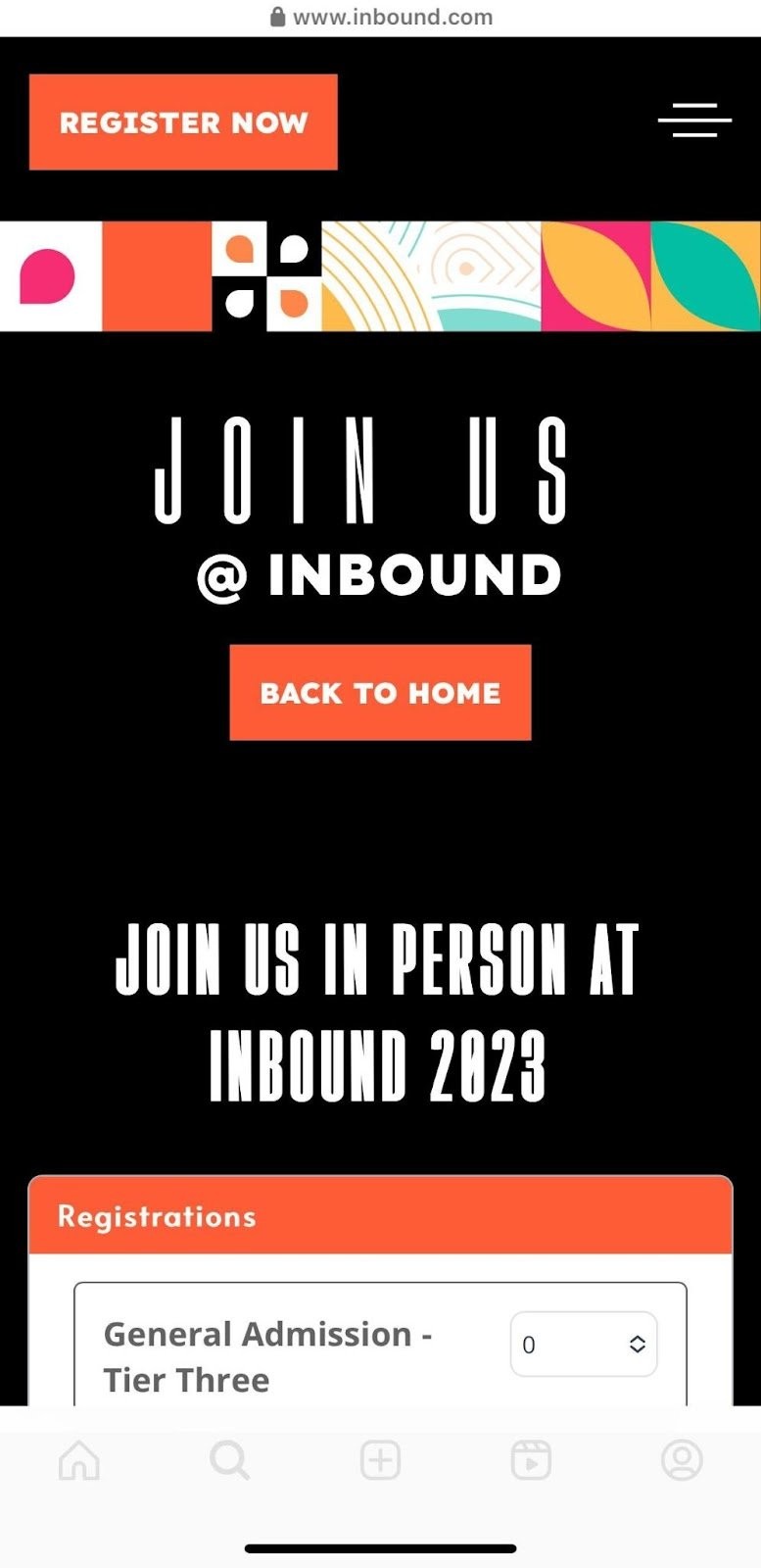
The ad didn’t take me to a page full of detail overload, it landed me strategically on a page that presented tickets.
It also featured a short description of the itinerary with visuals that instantly grab my attention and shows value rather than tells me why INBOUND is different and valuable.
9. 404 Landing Page
404s are never a good look, but it’s important you make them look as good as possible — and work for you a little as well. Get creative with 404s, use humor to offset the error, and always direct your audience to your homepage or other neutral landing page.
Then, put your 404 landing page to work as a lead generation tool. Take our own 404 page, here at HubSpot. We offer the user three options: visit our blog, learn more about our software, or sign up for a free demo.
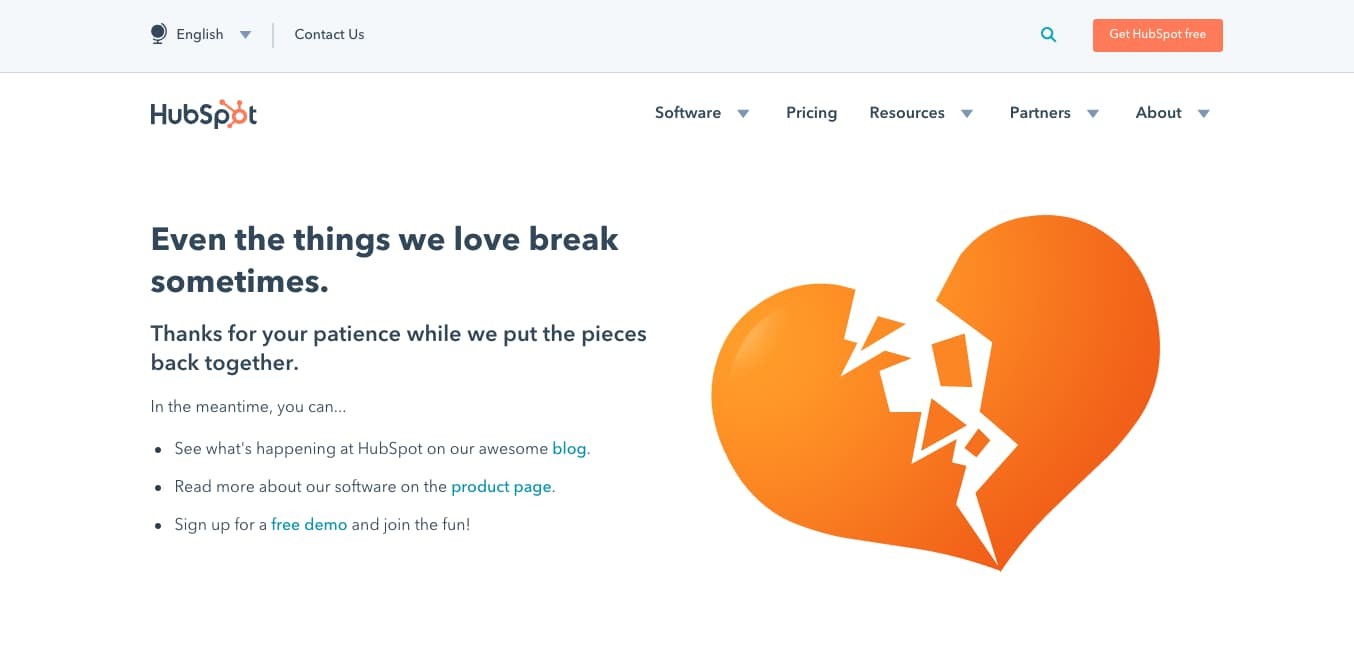
10. “About Us” Landing Page
Your “About Us” page doesn’t have to be a dead end. Make this landing page a lead generation page as well. Take this example from makeup company, Glossier.
They pack their “About Us” page with plenty of history, vision, and mission, but they also let the reader know how to move forward. The bottom of the page offers a reminder (and links) to shop, follow, email, and join the company, and an email subscription offer captures emails.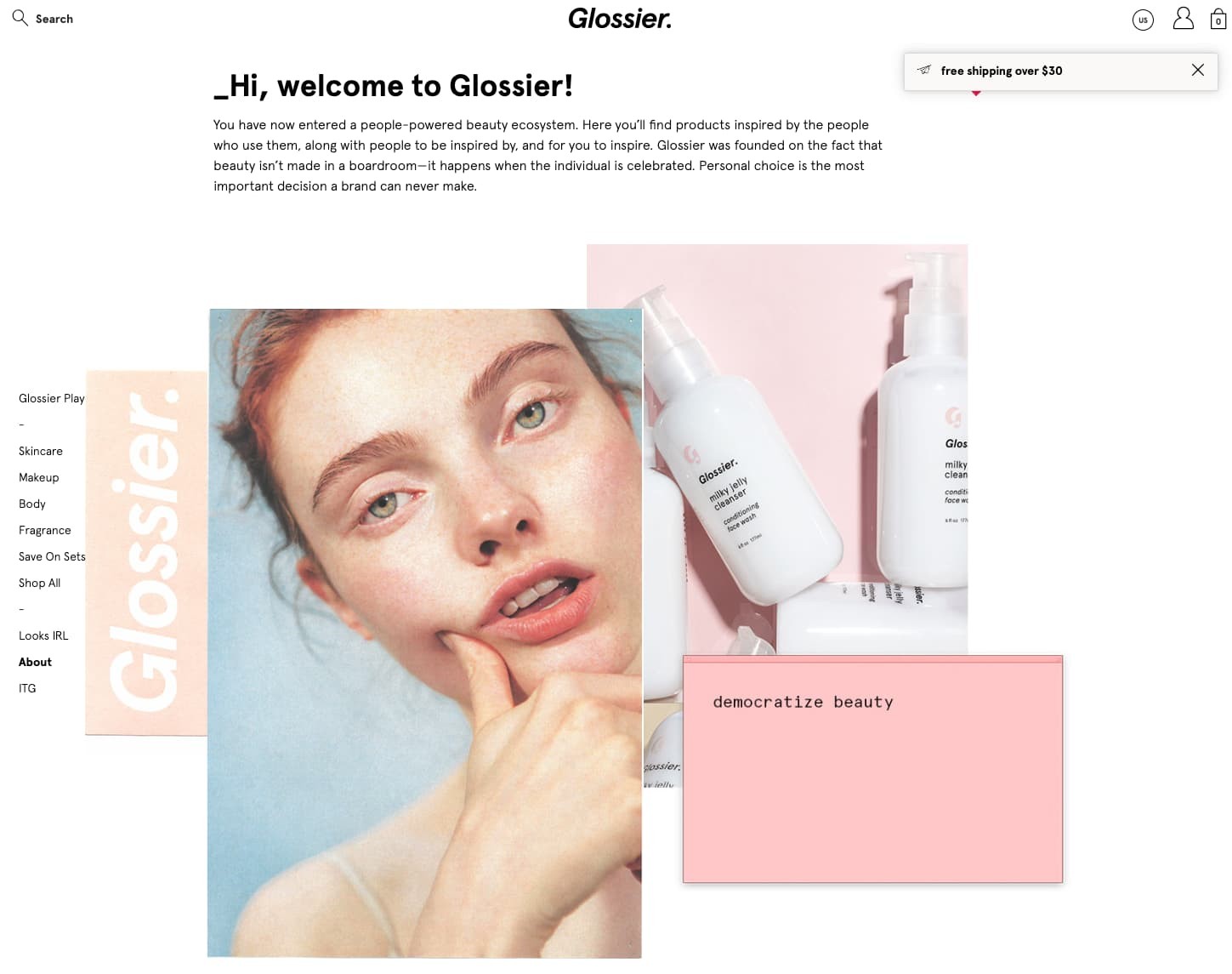
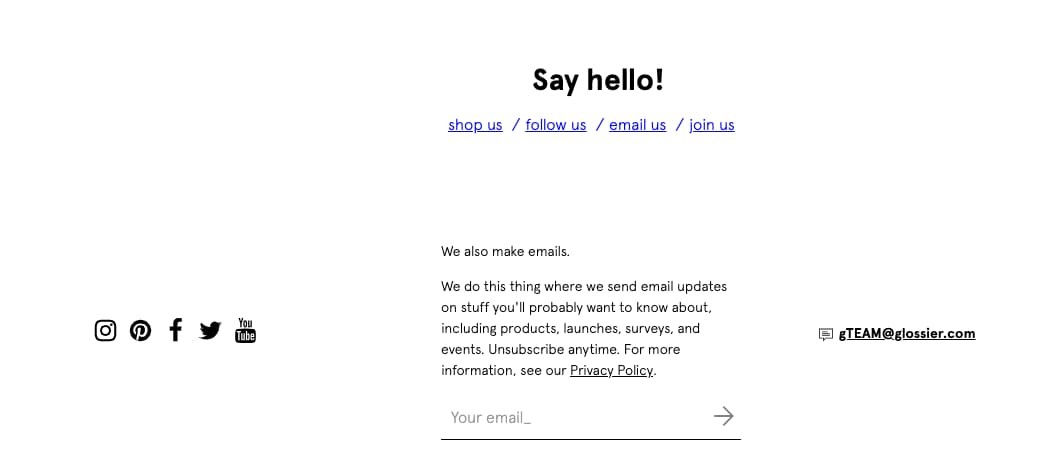 Image Source: Glossier
Image Source: Glossier
11. “Coming Soon” Page
Launching an exciting new product soon but aren’t quite ready to reveal the full offer — or the incomplete landing page? Set up a simple “Coming Soon” landing page instead.
Tease your offer, provide a launch date if you have one, and add a CTA that asks them for their email address in exchange for an email notification when your product or service is live.
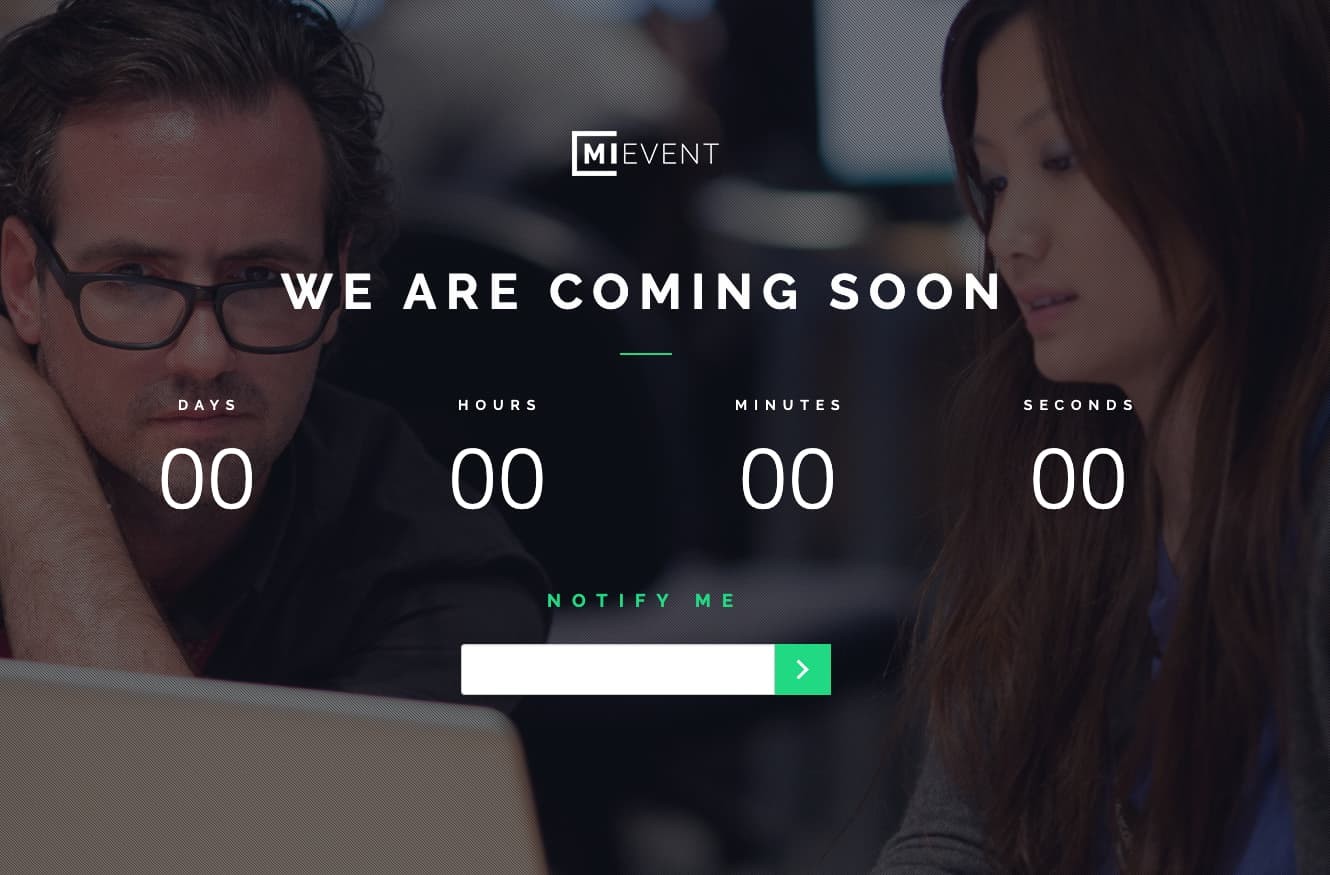 Image Source: MiEvent
Image Source: MiEvent
12. Pricing Page
If you’re unveiling new pricing or product tiers, you might consider pushing customers to your pricing landing page. Regardless, your pricing page should be one of the most heavily optimized pages on your site. Take this one, from Wistia, which clearly outlines their three tiered packages, with links to more information or to get started.
What I really love about their pricing page, however, are the two boxes right after a list of features and before a carousel of testimonials. They offer special callouts for interested parties who might not fall within the needs of one of the three boilerplate pricing templates.
And if even those additional CTAs don’t speak to your needs, scroll down to the bottom and find a CTA that offers customers the ability to “Choose your own adventure.”
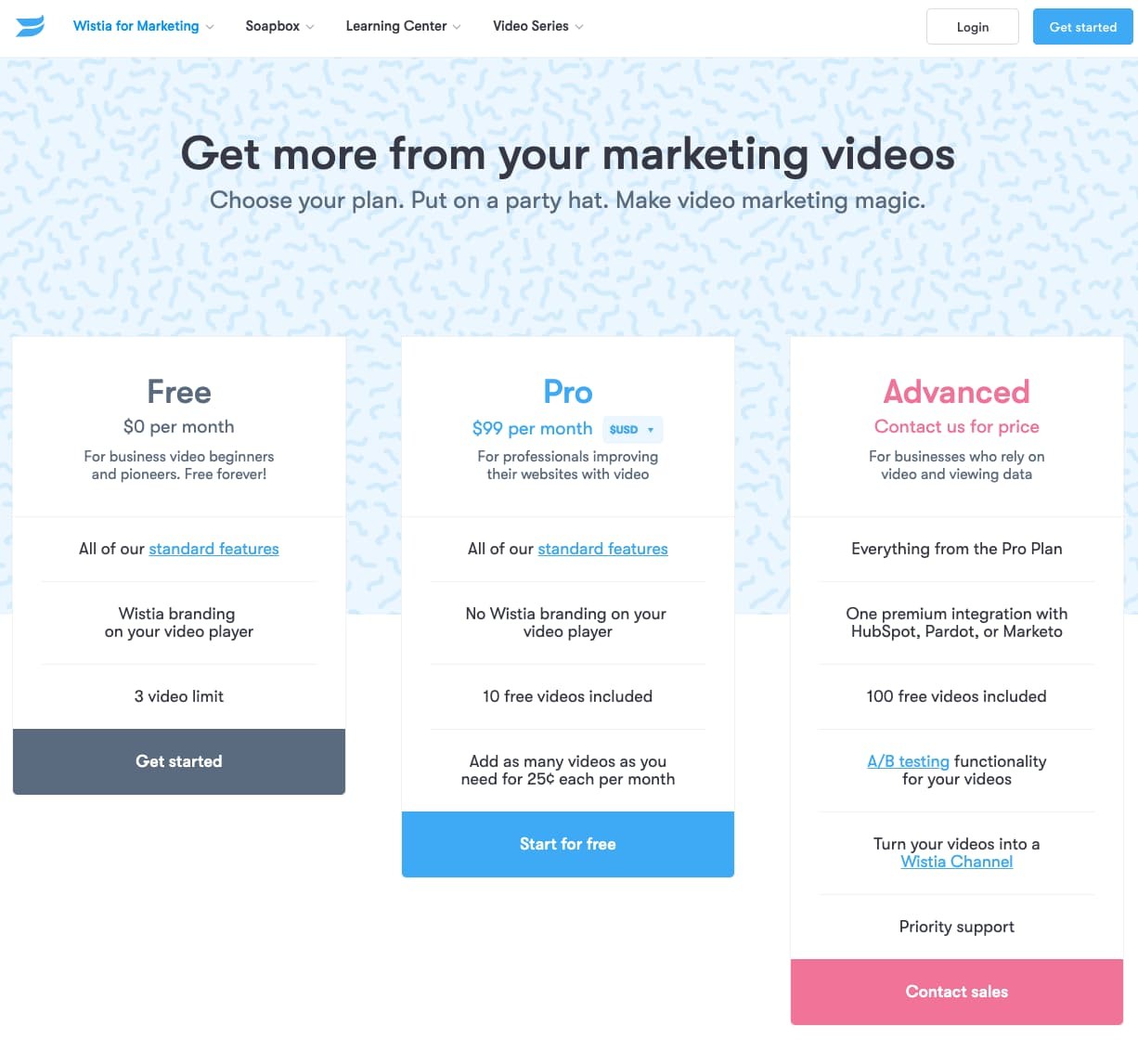
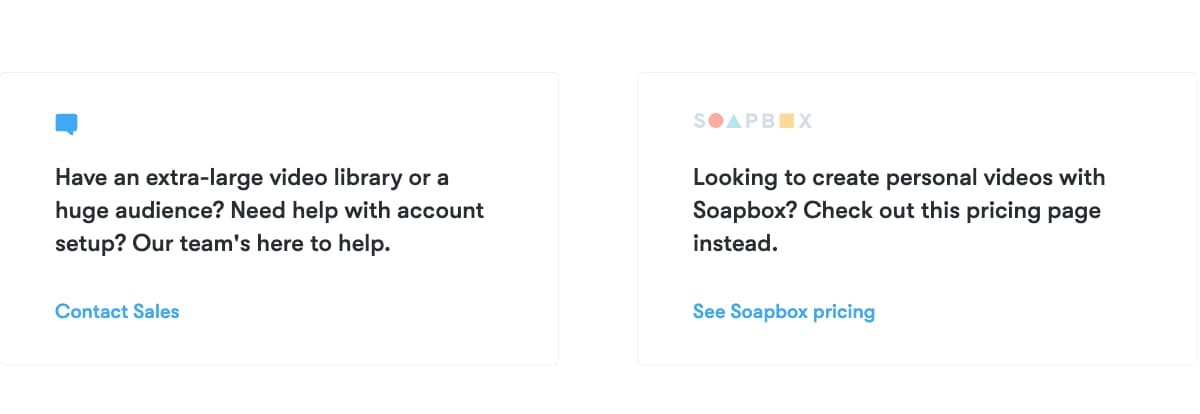
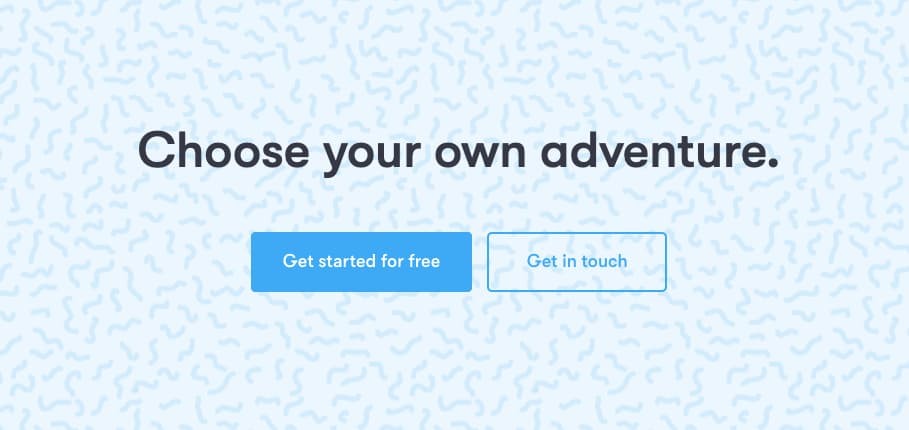
13. “Thank You” Landing Page
Too often, a “Thank You” page serves no real purpose. It tells you what you already know, “You’ve downloaded the greatest whitepaper in the world! Access it here.” Put your “Thank You” page to work by including additional offers or gifts.
You’ve been given an incredible opportunity to provide more value to a highly motivated, already-interested customer. Don’t waste it.
Take this example — another one from HubSpot. I downloaded the 2023 State of AI Report, and the “Thank You” page allowed me to check out HubSpot's new AI tools to scale my marketing efforts.
The form I fill out to receive this advice asks for different, more detailed, information about my business needs, allowing HubSpot to better craft the next offer they send my way.
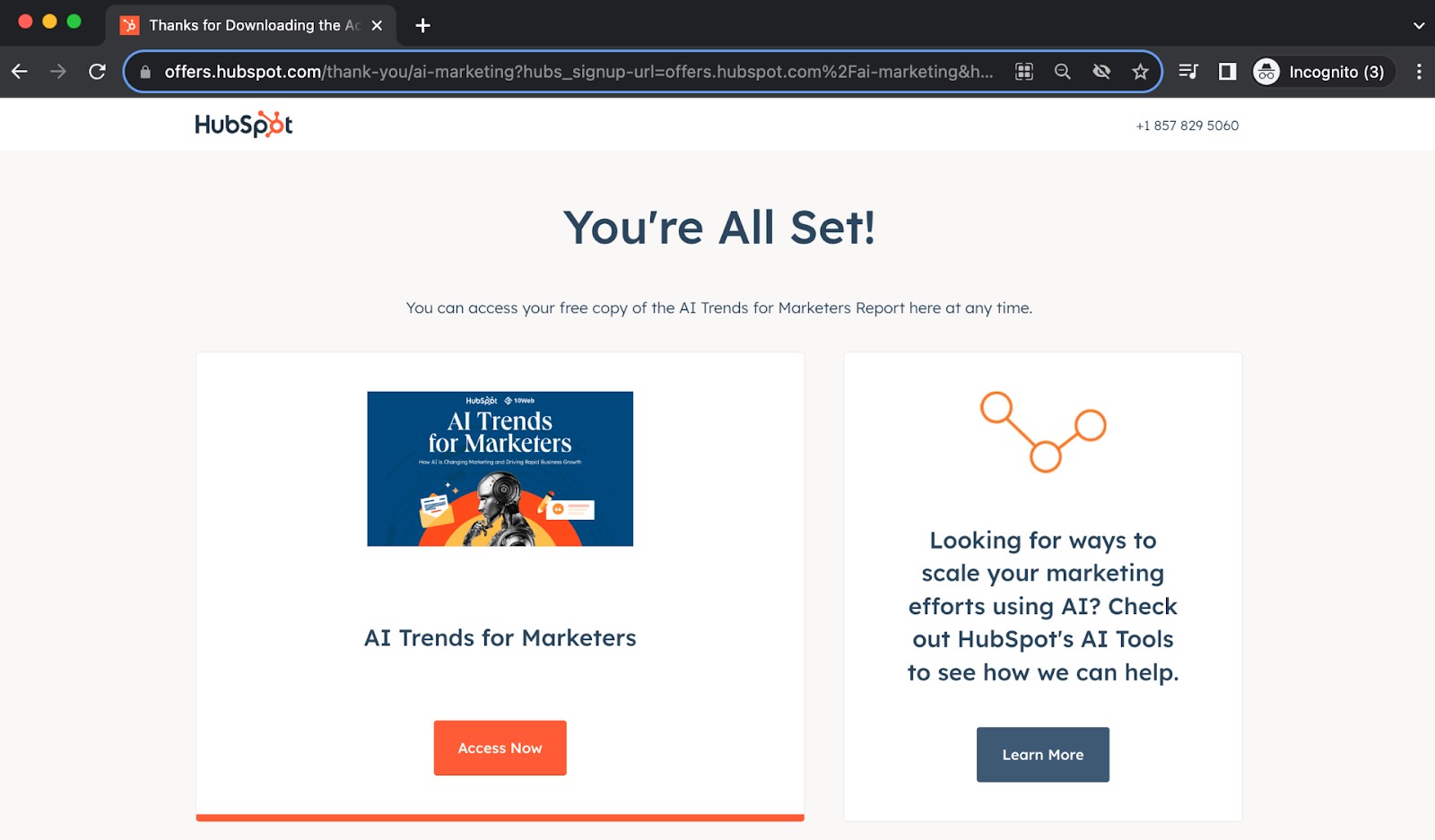
How to Choose the Right Landing Page for Your Campaign
Now that you understand the most common types of landing pages, the question remains: What are some best practices for choosing the right LP for your next campaign?
Begin by asking yourself these questions:
- "What are the business goals I’m trying to achieve with this landing page?"
- "How are my competitors achieving these goals?"
- "What are my audience’s goals when they land on this page?"
- "How did my audience get to this page (i.e., what action or motivation brought them here)?"
- "What do I want my audience to do when they leave this page?"
Once you understand the page's goals, consider whether it should be a short- or long-form landing page.
Short-form landing pages lend themselves well to squeeze landing pages, “Thank You” landing pages, and “Unsubscribe” landing pages. These pages require a small ask or provide a small service to the customer.
Long-form landing pages are best reserved for sales landing pages, click-through landing pages, and pricing pages. If you have a big ask of your customer, you should probably design a long-form landing page.
So, what does this look like in practice? Let’s say I’m creating a brand-awareness campaign for my new startup that facilitates puppy snuggles for tired office workers (a girl can dream, right?). My business goals for this campaign are to capture new leads (email addresses) and drive impressions.
My competitors are running social media campaigns driving customers back to a sales landing page. But since impressions and leads are my goal (not purchases), I might choose to run social media ads featuring big images of snuggling puppies.
When customers click my ads, they’re wondering what these cute puppies are about, so I’ll take them to my “About Us” page to tell them more about SnugglePups Inc. Because I’m also hoping to drive email signups, I’ll include a link to our weekly newsletter, which promises a roundup of the best puppy pics available.
Choose the Right Landing Page for Your Next Campaign
So are you ready to put all of this knowledge to use? Not all landing pages are the same or serve the same purpose. It's up to you to decide what you want customers to see and interact with, so make sure they land on a page that captures their attention, gets them in your pipeline, and keeps them wanting more.
Editor's note: This article was originally published in June 2019 and has been updated for comprehensiveness.

